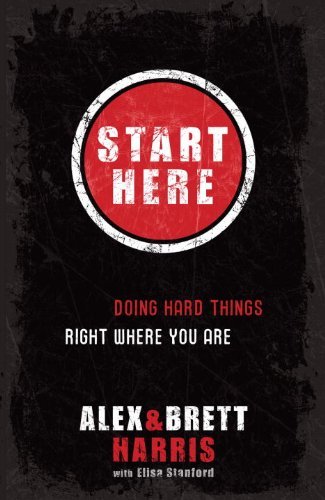
Make Your Bed: Little Things That Can Change Your Life...and Maybe the World
Book Description
What if the key to changing the world lies in the simple act of making your bed? In 'Make Your Bed,' Admiral William H. McRaven distills life lessons from his rigorous Navy SEAL training into powerful, actionable insights. Each chapter is a gripping exploration of discipline, resilience, and the little victories that can transform one's perspective and impact the greater good. Discover how the smallest actions can ripple outward, inspiring courage and determination in the face of adversity. Ready to unlock your potential and ignite change? What simple act could revolutionize your life?
Quick Book Summary
"Make Your Bed: Little Things That Can Change Your Life…And Maybe the World" by Admiral William H. McRaven draws on lessons learned from Navy SEAL training to encourage readers to embrace small, positive actions for greater personal and societal change. McRaven illustrates how simple habits, such as making your bed each morning, can set a tone of discipline, foster a sense of accomplishment, and instill resilience. By sharing ten key life lessons, he advocates for perseverance, embracing failure, and standing up to life's "sharks"—difficult challenges or people. The book is filled with personal anecdotes and accessible wisdom, motivating individuals from all walks of life to realize their potential, overcome adversity, and contribute to making the world a better place, one small step at a time.
Summary of Key Ideas
Table of Contents
The Importance of Small Actions and Discipline
Admiral McRaven opens his book by emphasizing the significance of small actions, using the morning routine of making one’s bed as a foundational example. This small act, practiced daily, encourages a sense of accomplishment and order, setting a positive tone that carries throughout the day. By consistently completing simple tasks with excellence, individuals establish discipline that permeates other aspects of their lives. The bed becomes a metaphor for attention to detail, routine, and the power of incremental progress in personal development.
Building Resilience through Failure and Setbacks
Overcoming adversity is a central theme. The author recounts arduous SEAL training experiences such as the grueling “circuses” and “sugar cookie” exercises, highlighting the inevitability of failure and discomfort. Through these stories, McRaven teaches that setbacks and challenges are valuable teachers. Instead of avoiding failure, embracing it as a tool for growth builds resilience and perseverance. This approach fosters mental strength, enabling individuals to get back up and push forward, even when circumstances seem insurmountable.
Camaraderie and Support Systems
The importance of camaraderie and teamwork surfaces repeatedly. McRaven stresses that no one succeeds alone; support systems—friends, family, colleagues—are essential. Drawing from missions and training, he exemplifies how relying on others, sharing burdens, and working towards common goals create bonds that enable groups to achieve extraordinary outcomes. The message is clear: mutual reliance and encouragement amplify individual and collective success.
Adapting to Adversity and Change
Adapting to uncertainty and change is another lesson. The unpredictable nature of SEAL training mirrored life’s volatility; one minute things are calm, the next the surf is cold and rough. Those who adjust quickly, maintaining optimism and flexibility, are able to thrive amidst chaos. McRaven’s anecdotes illustrate that by embracing change, viewing adversity as opportunity, and refusing to let circumstances erode morale, individuals become more capable, adaptable, and confident.
Courage and Integrity in the Face of Challenges
Courage and integrity round out the core lessons. Facing “sharks”—metaphors for workplace bullies, daunting obstacles, or inner fears—requires moral courage, not just physical bravery. McRaven urges readers to confront their fears, act with honor, and stand firm in their values, even under threat or pressure. By fostering an unyielding sense of purpose and ethical conviction, individuals can inspire others, weather the storms of life, and contribute to positive transformation in their communities and the world.
Download This Summary
Get a free PDF of this summary instantly — no email required.





